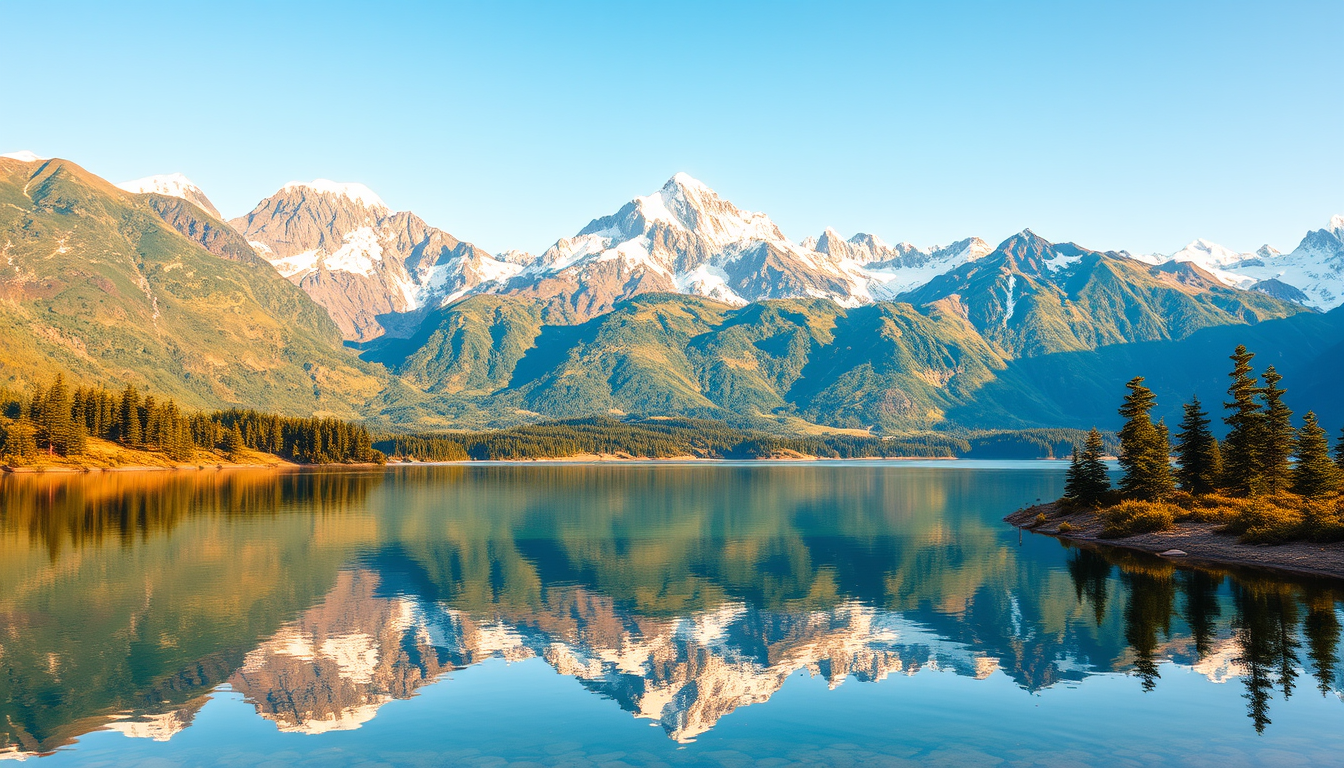The Himalayas, the highest mountain range in the world, is not only renowned for its towering peaks but also for its breathtaking lakes. Indian mountain lakes are a treasure trove of natural beauty, each with its unique charm and significance. This guide will take you on a journey through some of the most stunning Indian mountain lakes, exploring their history, cultural significance, and the best ways to experience them.
The Beauty of Indian Mountain Lakes
Indian mountain lakes are not just bodies of water; they are symbols of the country’s natural heritage. Nestled in the lap of the Himalayas, these lakes offer a serene and tranquil environment that is a stark contrast to the bustling cities of India. The crystal-clear waters, surrounded by lush greenery and snow-capped peaks, make them a paradise for nature lovers and photographers alike.
The Significance of Indian Mountain Lakes
Indian mountain lakes hold significant cultural and spiritual importance. Many of these lakes are considered sacred by local communities and are often associated with Hindu mythology. They are also a vital source of water for the surrounding areas, supporting agriculture and wildlife.
Popular Indian Mountain Lakes
Dal Lake, Srinagar
Dal Lake is one of the most famous mountain lakes in India, located in the heart of Srinagar, the capital of Jammu and Kashmir. Known for its picturesque beauty, the lake is a popular tourist destination and is often referred to as the “Jewel of Kashmir.”
History and Culture
Dal Lake has a rich history dating back to the Mughal era. The lake was a favorite spot for Mughal emperors, who built beautiful gardens and palaces around it. Today, it is a major attraction for tourists, who enjoy houseboat rides, shikara rides, and the vibrant local markets.
Best Time to Visit
The best time to visit Dal Lake is during the spring and autumn seasons. The weather is pleasant, and the lake is filled with lotus flowers, adding to its beauty.
Pangong Tso Lake, Ladakh
Pangong Tso Lake is another iconic mountain lake in India, located in the Ladakh region of Jammu and Kashmir. Known for its stunning turquoise waters, the lake is a popular destination for adventure seekers and nature enthusiasts.
Adventure Activities
Pangong Tso Lake offers a variety of adventure activities, including camping, trekking, and birdwatching. The lake is also a popular spot for stargazing, with its clear skies offering a perfect view of the night sky.
Cultural Significance
The lake holds significant cultural and spiritual importance for the local Buddhist community. It is believed that the lake is home to the spirit of a dragon, and the locals often perform rituals to appease it.
Tsomgo Lake, Sikkim
Tsomgo Lake, also known as Changu Lake, is a beautiful mountain lake located in the state of Sikkim. The lake is known for its stunning views and is a popular spot for tourists visiting the state.
Scenic Beauty
Tsomgo Lake is surrounded by lush greenery and snow-capped peaks, offering a breathtaking view. The lake is also home to a variety of bird species, making it a paradise for birdwatchers.
Best Time to Visit
The best time to visit Tsomgo Lake is during the spring and autumn seasons. The weather is pleasant, and the lake is filled with lotus flowers, adding to its beauty.
Bhimtal Lake, Uttarakhand
Bhimtal Lake is a beautiful mountain lake located in the state of Uttarakhand. The lake is known for its crystal-clear waters and is a popular spot for tourists visiting the state.
History and Culture
Bhimtal Lake has a rich history dating back to the ancient times. The lake is named after Bhima, one of the Pandavas from the Hindu epic Mahabharata, who is said to have created the lake.
Adventure Activities
Bhimtal Lake offers a variety of adventure activities, including boating, fishing, and birdwatching. The lake is also a popular spot for stargazing, with its clear skies offering a perfect view of the night sky.
Exploring Indian Mountain Lakes
Exploring Indian mountain lakes can be a rewarding experience, offering a chance to connect with nature and immerse oneself in the rich cultural heritage of the region. Here are some tips for exploring these stunning lakes:
Planning Your Trip
Research and Preparation
Before planning your trip, it is essential to research the lake and the surrounding area. Understand the best time to visit, the local customs, and any specific rules or regulations that may apply.
Transportation
Indian mountain lakes are often located in remote areas, and transportation can be challenging. It is recommended to use a reliable travel agency or hire a local guide to help with transportation and logistics.
Safety and Responsibility
Safety Precautions
While exploring Indian mountain lakes, it is crucial to take safety precautions. Always follow the guidelines provided by local authorities and be aware of the weather conditions.
Responsible Tourism
Indian mountain lakes are fragile ecosystems, and it is essential to practice responsible tourism. Avoid littering, respect local customs, and support local communities by purchasing locally made products.
Conclusion
Indian mountain lakes are a testament to the natural beauty and cultural heritage of India. From the serene waters of Dal Lake to the turquoise expanse of Pangong Tso, these lakes offer a unique and unforgettable experience. Whether you are an adventure seeker, a nature lover, or a cultural enthusiast, exploring Indian mountain lakes is an experience that you will cherish for a lifetime.
So, pack your bags and set out on a journey to discover the jewels of the Himalayas. The stunning Indian mountain lakes await, offering a glimpse into the country’s natural and cultural wonders.
